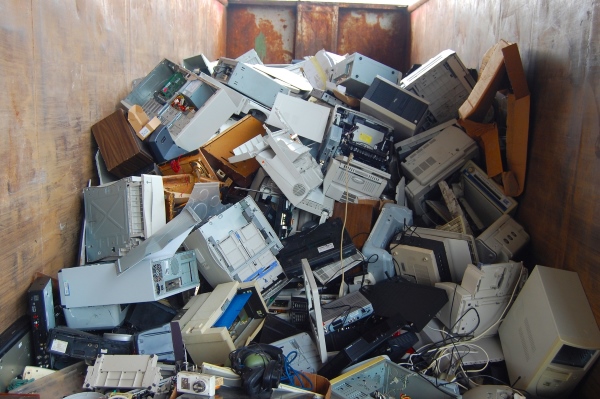
A GPS tracking project in the US has revealed the true nature of the electronic waste recycling chain, highlighting lies, fraud and dangerous risks to human health.
The e-Trash Transparency Project revealed that companies who claim to recycle and never export used electronics are in fact sending the e-waste overseas to developing countries. While most of this is dumped, some could be used in counterfeit goods.
This is the second set of findings from the GPS tracking project, led by the Basel Action Network (BAN), an environmental advocacy group against toxic waste.
Last year, the Network published an expose tracing where e-waste ended up after placing 205 GPS tracking devices inside old printers, LCD, and CRT monitors that were then delivered to US charities, retailers and recyclers.
The results revealed that 34 per cent of the 205 deployments moved offshore with 31 per cent of the total going to developing countries. Looking at those that were exported only 93 per cent of the exports went to developing countries, with 87 per cent going to Asia, 3 per cent to Africa and 1 per cent each to the Middle East and Latin America/Caribbean region.
Forty percent of the GPS-tagged goods that were delivered directly to recyclers were exported, while the project found there were pathways or chains the e-waste was passed along to its final destination, with the 205 tracked goods passing through the hands of 168 different identifiable US recyclers.
Most of the exports were found to end up in Hong Kong's rural northern area called New Territories where they were dumped in hundreds of e-waste junkyards for dangerous manual destruction or left in fields and wastelands.
The trade of most electronic waste to developing countries from developed countries is illegal under international law (Basel Convention) and under the laws of most developed countries, BAN said. On this basis, 96 per cent of the exports revealed by BAN 's 2016 study were most likely illegal. Yet despite international law, the exportation of hazardous electronics waste does not violate US law.
E-waste that is exported to developing countries ends up being smashed, burned or treated with dangerous chemicals, exposing workers to chemicals such as mercury and lead.
In the most recent findings of Phase 2 of the project, BAN found 16 more instances of exports to developing countries (15 LCD screens and one printer) involving seven recycling companies. Twelve of these goods were exported to Hong Kong, three to China and one to the Philippines.
"Companies that are the 'last' handlers prior to export are most likely wilfully involved in exporting, as they most likely had direct control over the decision to export or not," BAN said in its report on the Phase 2 findings.
"Our GPS tracking devices continue to serve as lie detectors for an industry that far too often lives a lie, cloaking themselves in green and using the word 'recycling' as a shameful shield," BAN director Jim Puckett said in a statement.
For example, one California-based recycling company IQA Metals apparently exported four e-waste LCDs to Hong Kong. According to its website: "IQA Metal agrees not to allow the export of hazardous e-waste we handle or control to be exported to developing countries, either directly or through intermediaries, throughout final disposition." Meanwhile, Goodwill Industries from Oxford, Michigan, continues to allow the export of the electronics they receive despite policies not to do so.
BAN said these examples opened the companies up to fraud charges.
Furthermore, a company's involvement in a 'chain of export', even though they weren't the apparent exporter or last handler, was a cause for concern, BAN said. "Today, it is an established industry norm and practice that responsibility for waste management does not just extend to the edges of one's property boundaries or ownership, but includes the choices and additional steps a company takes to verify that their downstream vendors operate responsibly. This concept known as 'due diligence' applies both to upstream supply chains as well as to downstream disposition chains. All recyclers have a responsibility to perform the necessary due diligence to know that their e-waste does not get harmfully or illegally exported after it leaves their hands."
BAN's enforcement activities have so far resulted in one federal criminal convection and four ongoing criminal investigations or indictments for fraudulent or illegal exports of e-waste.
Meanwhile, the US re-introduced a bill earlier this year – the Secure E-waste Export and Recycling Act (SEERA) – which aims to control the export of electronic waste that could be used in the production of counterfeit electronics that could re-enter the US market.
The US is the world's largest producer of e-waste, and according to the Environmental Protection Agency, it is growing at a rate two to three times faster than any other regulated waste stream.
©
SecuringIndustry.com
 | back to top
| back to top





